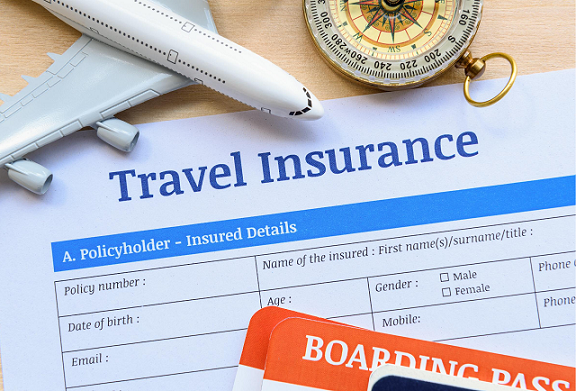IELTS Reading Practice – Sample 19 (GT)
Making a travel insurance claim

Answer these questions on the passage below.
Then, scroll down to the bottom of the page for the answers.
Choose NO MORE THAN TWO WORDS AND/OR NUMBERS from
the text for each answer.
1. What telephone number should you take with
you when travelling?
2. What is the time limit within which you should inform the police of missing belongings?
3. What method of submission might bring a faster resolution to your claim?
4. What might you have to provide to prove that you looked after your belongings when claiming for lost, stolen or damaged items?
5. How soon should you inform your insurer in the case of a medical emergency?
6. What might you not be allowed to do if you are close to giving birth?
7. What work situation may be considered a legitimate reason for cancelling a holiday?
Reading passage:
Making a travel insurance claim
Key information
- When you travel, take your insurance policy documents with you.
- Make a separate note of your insurance policy number and the emergency contact telephone number of your insurer in case you lose your documents.
- Keep receipts of anything you need to purchase to support your claim.
- When medical treatment is required, if possible, get your
insurers agreement before it is carried out.
- Disclose existing health problems when you take out your insurance.
- Report lost or stolen items to the local police as soon as possible, ideally within 24 hours.
Before making a claim
Check the following:
- Your policy covers you for what you are claiming for
- The time limit for claiming has not expired
- The excess on your policy (the amount you have to pay towards any claim you make)
Also, make copies of any paperwork (e.g. police reports, receipts, medical certificates) you’ll be submitting with your claim. Send the originals and keep the copies for your records.
Other information
You may have a choice between making your claim online or filling out and mailing a claim form provided by your insurer. Using email may speed up your claim.
Whichever method you use, be sure to keep a copy.
Making a claim for lost, stolen or damaged items or luggage
Make your claim as soon as possible after returning home.
Expect your insurer to ask for evidence that you took reasonable care of your belongings.
Report all lost, stolen or damaged belongings to the local police within 24 hours. When this is not possible, tell an appropriate person such as your tour representative or hotel manager and ensure they make a written report and give you a copy.
Keep receipts of any essential replacement items you need to buy to submit with your claim.
Making a claim for medical emergencies and personal injury
Contact your insurer immediately. Unless emergency medical treatment is required, try to get them to agree to the treatment before it is given.
Keep receipts for any treatment that requires payment up-front and for any medication purchased.
If you failed to disclose a pre-existing health problem that you need treatment for while you are, you may not be covered for this problem.
Make sure that you take all regular medication you need with you. Your insurer may not cover the cost of this if you run out while you are away.
If you are pregnant when travelling, take note of the requirement of your policy, particularly if you are flying. Your insurer may not permit you to fly within a given time of your due date.
Making a claim if you have to cancel or shorten your trip
To
make a claim for a cancelled or shortened trip, you will need to provide
evidence of having a good reason for doing so. Permitted reasons may
include:
- unexpected death, illness or injury to you, your partner or people travelling with you
- unexpected death, serious illness or serious injury to a close relative at home
- unexpected
damage to your home, e.g. a fire, a flood or a burglary
- you are made redundant
- you are called for jury service or as a witness in court
If you have to come home early, keep receipts of any extra travelling and accommodation costs incurred in getting home.
Answers
Scroll down for the answers.


Answers:
1. emergency contact
2. 24 hours
3. email
4. evidence
5. immediately
6. fly
7. redundancy
To learn How to Answer Short Answer Questions, click this link.
Like this page?
More IELTS Reading Practice Samples
Here are a few examples of the many practice activites I've created:
Sample 1 – What matters most when speaking a new language
Sample 2 – Fire evacuation plan (GT)
Sample 3 – Climate change and loss of biodiversity
Sample 4 – The wasp queen
Sample 5 – Discovering our ancestors
Sample 6 – Telecommunication - undersea cables
Sample 7 – Biodiversity
Sample 8 – Mining asteroids
Sample 9 – Dress Code Policy (GT)
Sample 10 – How to fight desertification & drought
To see the full list of practice samples, click this link:
›





